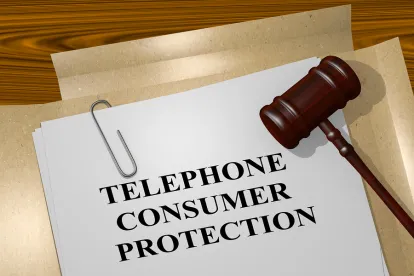Occasional TCPA defense lawyer Joshua Thomas recently received an expensive sanction and public reprimand from a United States District Judge in Pennsylvania. Without explanation or reason, Mr. Thomas failed to file his clients’ corporate disclosure statement required by Rule 7.1, “disregarded . . . deadlines that ensure cases move in an orderly way,” and flouted the Court’s orders. Following several orders to show cause and a hearing, the Court fined Mr. Thomas $1,600 and required that he provide his clients and the federal and state bars copies of the sanction order. Mr. Thomas’s misconduct is a lesson in how not to defend a TCPA case and an important reminder about why TCPA defendants should hire good counsel.
Mr. Thomas’s trouble started in an earlier case before the same Court. In Shelton v. FCS Capital LLC, et al., No. 2:18-cv-3723, he represented FCS Capital LLC, among others, defending TCPA claims. He initially failed to file a timely answer, resulting in a default against his clients. The Court gave him a second chance–vacating the default. Yet Mr. Thomas then failed to respond to the plaintiff’s requests for admissions. So all of the requests were deemed admitted. And then, after missing several other deadlines, Mr. Thomas failed to respond to the plaintiff’s summary judgment briefing and his clients lost.
Meanwhile, with summary judgment briefing pending in that matter, Mr. Thomas sued the plaintiff and his company in a new case. He failed, however, to file the disclosure statement required by Rule 7.1 for his corporate-defendant clients. The Court issued an Order to Show Cause why it should not sanction Mr. Thomas, and he (again) failed to respond. Instead, after missing that deadline, he moved for more time to respond but still failed to do so. He also missed deadlines for the merits of the case, resulting in a judgment against his clients.
The Court held a hearing on sanctions. Under oath, Mr. Thomas claimed that he did not file the corporate disclosure statement because he was waiting for information from his client. The Court found that testimony “not to be credible” and noted that Mr. Thomas “conveyed defiance” throughout the hearing. Based on his conduct, testimony, and multiple other prior sanctions, the Court “determined that sanctions are appropriate”; the Court also concluded that Mr. Thomas had failed “to change his ways” after prior sanctions, meaning “harsher sanctions” were “necessary to make the point.”
For the TCPAWorld, Mr. Thomas’s trouble provides a warning about the pitfalls of failing to hire diligent counsel.




 />i
/>i

